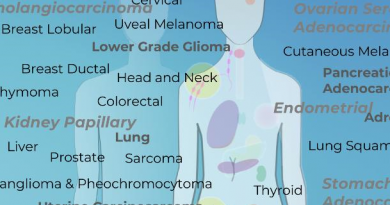ON A MATTER OF HEALTH: Clinical trial tests novel treatment strategy for ITP
The immune system is meant to protect the body from foreign invaders. A rare condition called immune thrombocytopenia (ITP) occurs when the body’s defense system becomes confused and targets healthy blood cells. The body starts destroying its own platelets, leading to bleeding. The severity can range from simple nosebleeds to life-threatening bleeding in the brain or gastrointestinal tract. Baylor College of Medicine researchers at Texas Children’s Hospital are working to find out if a drug used for the chronic form of ITP could be used early in the disease course and improve outcomes.

ITP can affect both children and adults. In most pediatric cases, the condition resolves on its own without treatment. About 25 percent of children develop chronic ITP, which can last years or a lifetime. At the time of diagnosis and early in the disease course, children with bleeding symptoms are typically treated with therapies that attempt to stop platelet destruction. But those therapies can be toxic for children, and they are temporary treatments that do not alter the disease course.
Baylor College of Medicine is the lead site in a multi-center clinical trial investigating a different approach to upfront therapy: an FDA-approved drug called eltrombopag. It stimulates bone marrow to make more platelets and is approved for adults and children with chronic ITP. But researchers are finding the drug may have positive effects on the immune system.
“In the adult studies, there are a small but not insignificant number of patients who have been treated with eltrombopag or another agent with a similar mechanism of action, and have gone into remission—meaning they had ITP for 20-plus years, got exposed to this agent and then didn’t need any therapy and maintained a normal platelet count,” said Dr. Jenny Despotovic, associate professor of pediatrics – hematology at Baylor College of Medicine and principal investigator of the clinical trial.

Because eltrombopag has few side effects in children, the pediatric hematology community has already started using this drug to intervene earlier than one year from diagnosis. Now Despotovic’s team wants to find out if patients could benefit from having the drug treatment even sooner. The trial will give patients eltrombopag within the first three months of ITP diagnosis. Researchers will then observe how long children maintain a platelet count above 50 and how much bleeding occurs.
“For a long time, people thought these drugs were not cures,” Despotovic said.
Now we know the biology of the drug is doing more than we thought. It’s actually having an effect on the immune system in addition to helping make more platelets.”
This clinical trial will be conducted at 20 sites, with Baylor serving as the primary site. Currently, Baylor is the only open site and has three patients enrolled. Researchers plan to enroll 156 patients across the sites in the next two years. Despotovic said she hopes this trial will ultimately lead to a better way to treat ITP in children.
“I could envision that if this study shows that fewer children are getting chronic ITP, maybe there’s a discussion about whether it’s appropriate to continue observing kids who could potentially go into remission with an agent like this,” Despotovic said. “We’re very far away from the answer to that question. This trial by itself won’t answer it. But it will provide the groundwork for further investigation around whether that’s a worthwhile strategy to pursue.”
Scientists have not pinpointed an exact cause for ITP. A popular theory is that it stems from routine viral infections or allergic reactions. Despotovic and other researchers at Baylor theorize genetics plays a role. She is conducting a separate study to examine genetic factors, which could predict when the disease will become chronic.
“If we could determine that on day one, we would never observe a patient who is going to have chronic disease, we’d put them right on a therapy and attempt to interfere with that process,” Despotovic said.
Find more information on this clinical trial and how to sign up here. See more on this disorder and how Texas Children’s Hospital and Baylor College of Medicine are treating it here.



